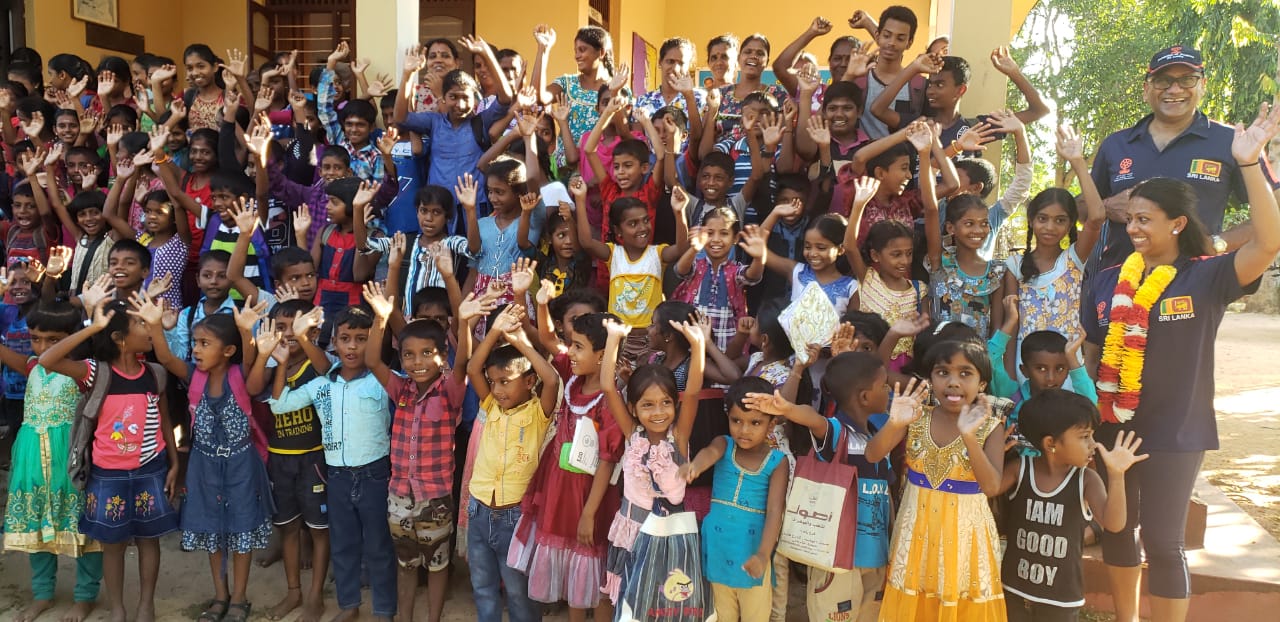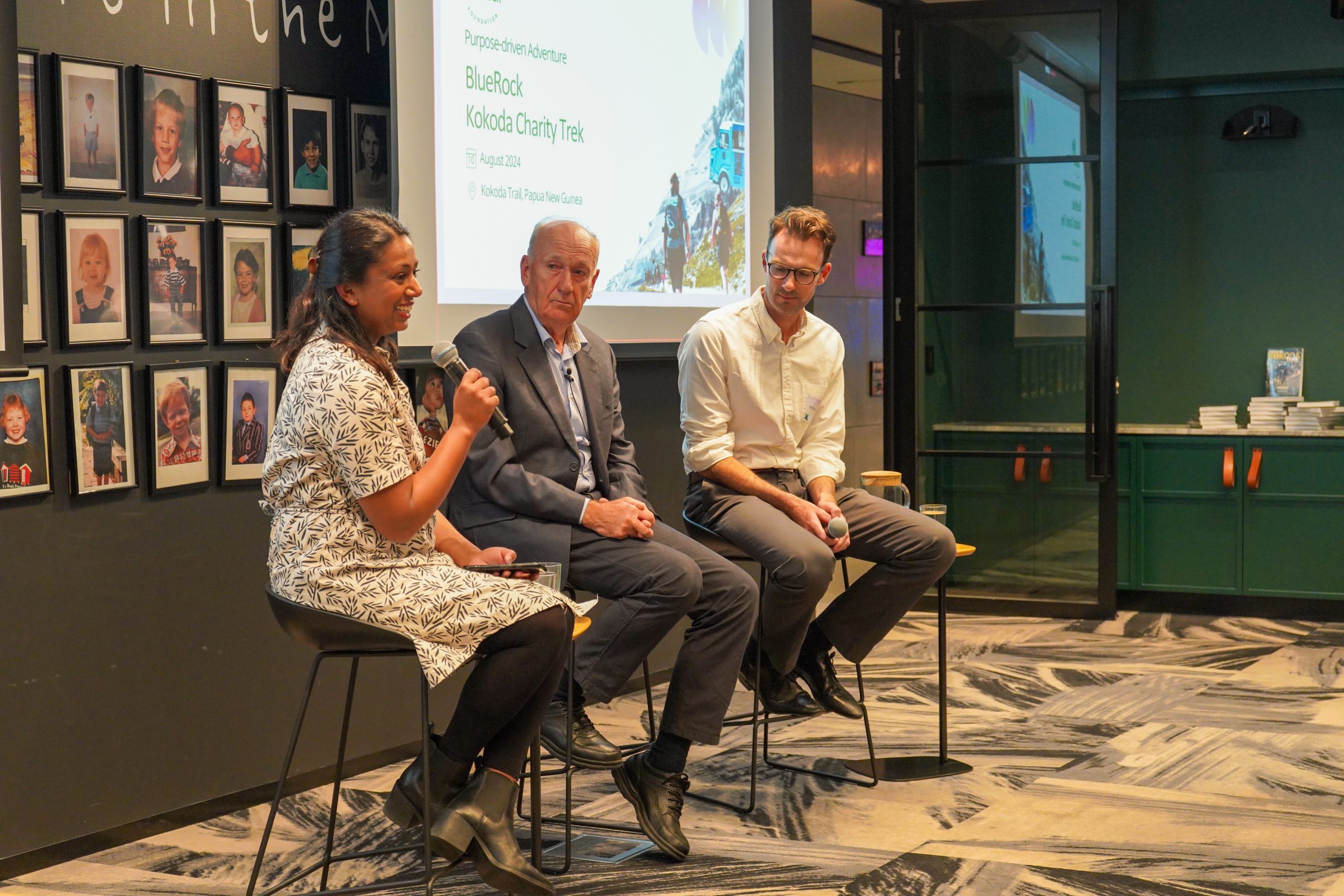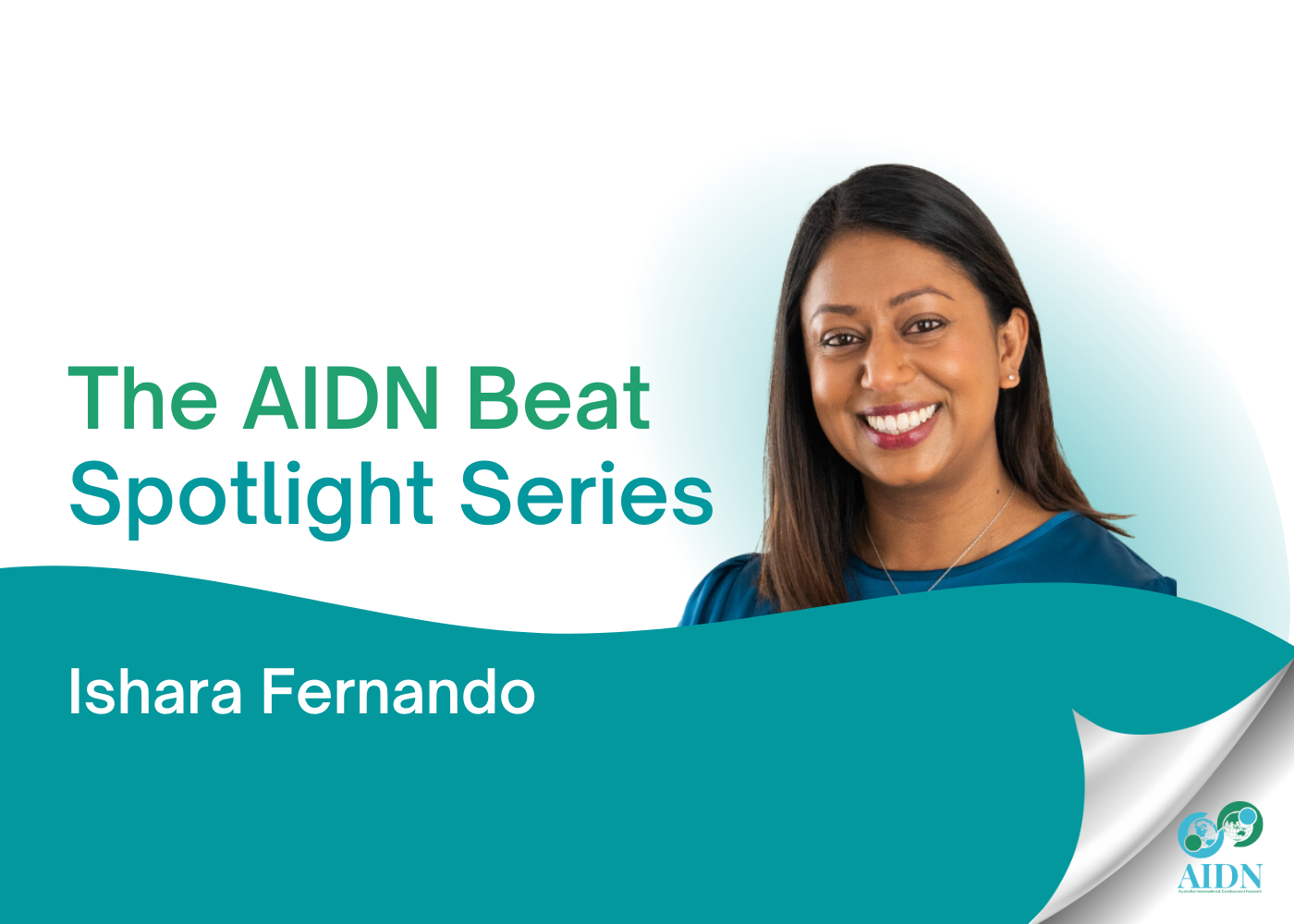How long have you been involved in the international development sector, and what first inspired you to enter the sector?
Being born in Australia provided me with more opportunities in life than if I had of grown up in a developing/low-income country marred by civil war (Sri Lanka). From a young age, this perspective instilled in me gratitude but also motivated me to help people have the basic needs in life plus opportunities to achieve their potential and live their dreams. Another major life changing experience for me was a school exchange program where I lived in Germany for 3 months. The generosity my host family showed this Aussie 17-year-old strengthened my resolve to both forge strong connections around the world and to show kindness and generosity. After finishing school, I also visited a Sri Lankan NGO where my brothers both volunteered their time and skills – I saw how my family valued helping others and how little others have. I’ve been championing the Foundation of Goodness for years now. Travelling so young helped me develop a global mindset and has since made me feel like the world is connected in a way that makes me dream of helping communities less fortunate than us.
This passion solidified in my heart when volunteering and living in a rural village outside Siem Reap in Cambodia when I was 19. I was struck by how much the children wanted to learn, yet did not have the opportunities to attend school and how little financial security these rural families had. I was inspired to build a partnership with a local microfinance organisation or university to improve financial literacy and school completion outcomes. This project with Cambodia led me to learn from social business and microfinance concepts, and from international development academics at Monash University. Ultimately, we did a lot of good but also created harm through dependency on international English teaching volunteers. We ended the student program because a local partnership wasn’t established for ongoing local-led sustainability.
My worldview on international development was further developed whilst working at the social enterprise Thankyou whose mission is to eradicate extreme poverty. In particular, I had the opportunity to further learn from NGOs in Asia and sub-saharan Africa. My work with social enterprises, financial inclusion and philanthropy is all tied together with a golden thread of using my skills, time and energy to make the world more equitable, just and inclusive.

Ishara on a site visit with Foundation of Goodness NGO in Batticaloa, Sri Lanka in 2019.
What have been the biggest changes you have witnessed throughout your time in the development sector, specifically in relation to your area of expertise?
Throughout my time in the for-purpose and development sector, the world has progressed a long way and made notable advances in issues of global poverty and inequalities. However, this progress has also not been fast enough and not nearly as collaborative as it could be. I believe we now need to harness the strengths of private, government and civil society sectors to solve the world’s biggest problems, which have the most adverse effects on those most vulnerable in our global community.
In philanthropy, I also love seeing more publicised giving (kindness breeds kindness), more democratised giving (giving is not reserved for high net wealth) and the joy of continuous learning (curiosity, seeking to understand and adapting giving practices).
If you could see one change in the international development sector occur tomorrow, what would it be and why?
My work is not only in international development so this wish is for the for-purpose sector as a whole. I’d love to see more effective partnerships, mergers and knowledge-sharing – essentially more collaboration between organisations, bringing their learnings and resources to pool together, leaving aside the ego of being a founder. For example, over the last year in Australia, we’ve seen our Be BlueRock Foundation’s charity partner The Youth Impact Foundation merge youth sector organisations together under one umbrella. In doing so, they have achieved a 25% reduction in cost base, 10% more revenue and reached more young people with mental health outcomes such as lowered suicidal ideation. This is the type of model that should be highlighted and taken forward.

Ishara, Bill James and Richard James at the BlueRock Kokoda Charity Trek launch event 2023.
AIDN’s ethos is “more” and “better” international giving from Australians. What does “more” or “better” international giving look like to you? (Feel free to answer with reference to “more” or “better” or both)
It’s unfathomable how little Australia gives, relative to our wealth as a nation, with our government giving 0.21% of our Gross National Income in official development assistance (compared to the United Nations target of 0.7% of GNI) and similarly low percentage of international philanthropic donations. From government funding to individual’s philanthropy, international aid and development doesn’t receive enough funding.
Imagine a world without subsidised healthcare or government welfare payments… this is the reality for many other countries globally. Australia is the world’s 13th largest economy, is prosperous, cohesive, healthy, full of talent and has a rich consumer market with a large number of high-income households. In a way, the pandemic shrunk our bubbles closer to home. But aren’t we all citizens of a global world?
For me, more and better international giving would be anything we can do to inspire more global citizens looking beyond their national border. It also looks like investing in local-led, culturally appropriate and best practice solutions targeting root causes, not symptoms. I’d love for philanthropic giving to be multi-year untied funding and funders accepting standard project reporting as opposed to bespoke reporting and field visits. My years serving on a small grassroots board Possible Dreams International supporting a local team in Eswatini proved to me that you can commit to giving without experiencing the programs firsthand. Better international giving involves more trust-based philanthropy from funders, accepting one-to-many storytelling without the burden of extensive donor-appeasing activities. As a philanthropy adviser, I would love to see more philanthropists giving locally, nationally and internationally beyond where they can witness the impact firsthand.
Ishara Fernando
Ishara is BlueRock’s Philanthropy and Impact Manager and she manages the Be BlueRock Foundation. Ishara has 10+ years in the social impact sector managing charity partnerships and engaging communities in charity giving. Ishara uses her strengths and experience in project and operations management, social impact and leadership to build a more equal, just and inclusive world. Outside of work, she volunteers to alleviate poverty in developing/low-income countries, specifically Sri Lanka and Eswatini, Africa.
